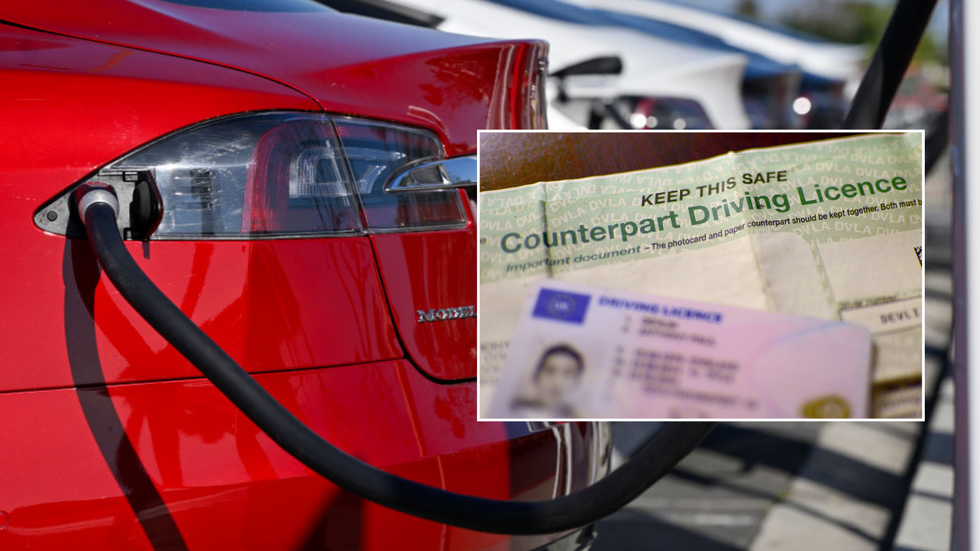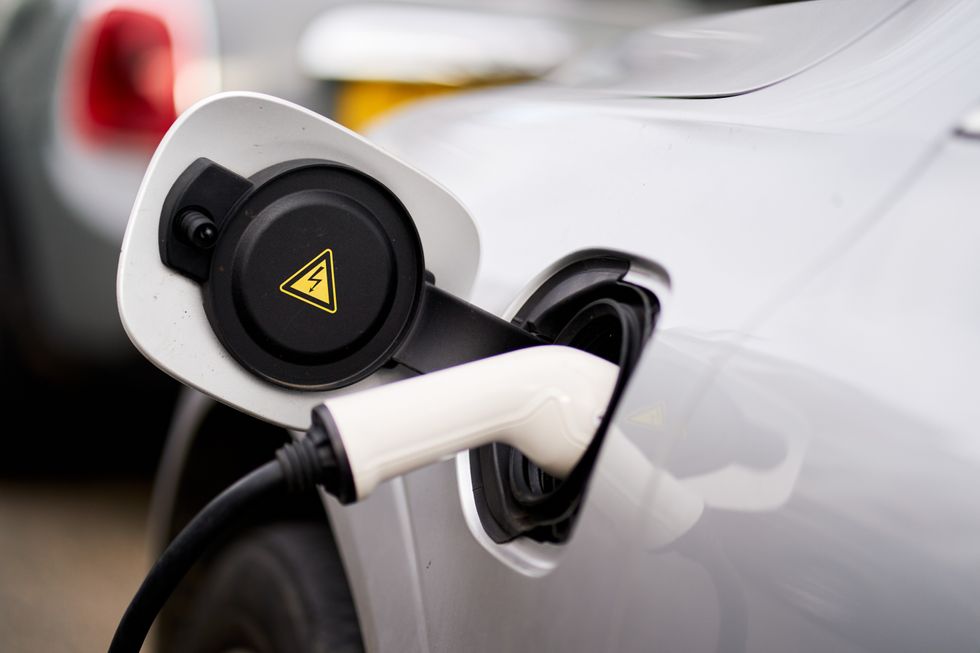WATCH: Rachel Reeves says she will continue to support the purchasing of electric vehicles
GB NEWS
The changes hope to remove regulatory red tape for electric vehicles
Don't Miss
Most Read
Trending on GB News
Labour has approved new regulations which would see drivers of electric vehicles operate heavier vehicles without needing additional training.
The changes, which were debated in the House of Commons yesterday, aim to support the transition to greener vehicles by removing regulatory barriers.
Transport Minister Mike Kane told MPs the regulations would "support the transition to electric vehicles, reduce the regulatory burden on business and drive economic growth on our journey to becoming a clean energy superpower".
The new regulations will enable category B licence holders to drive fully electric or hydrogen-powered vehicles weighing up to 4.25 tonnes without the previously required five hours of additional training from an accredited instructor.
Do you have a story you'd like to share? Get in touch by emailingmotoring@gbnews.uk

The changes will allow category B licence holders to drive electric or hydrogen-powered vehicles weighing up to 4.25 tonnes
PA/GETTY
Under previous rules introduced in 2018, drivers needed this training and could only drive alternatively fuelled vehicles for transporting goods, with no ability to tow.
The updated regulations also allow electric vehicles up to 4.25 tonnes to tow trailers, provided the combined weight does not exceed seven tonnes. Existing Category B rules on driver ages and passenger numbers will continue to apply.
Electric vehicles are heavier than equivalent petrol and diesel vehicles because of the weight of their battery or powertrain, which pushes them into higher driving licence categories.
The Minister explained that the cost of training and taking drivers off the road to complete it "can be prohibitive and time-consuming for business."
A public consultation on the proposals in 2022 received 89 responses, largely supporting the changes, although some safety concerns were raised.
The Government analysis found "extremely low risk to road safety" with only nine collisions involving these vehicles between 2020 and 2023, six of which were minor.
The regulations include specific provisions to ensure disabled people are not excluded from the benefits of the new rules.
"To ensure that disabled people are not excluded from the benefits that this SSI allows, an eligible zero emission vehicle may weigh up to five tonnes if fitted with specialist equipment for the carriage of disabled passengers," Kane explained.
This additional weight allowance also applies to minibuses, ensuring accessibility is maintained across different vehicle types.
However, Conservative shadow minister Greg Smith, while supporting aspects of the reforms, warned that "limiting the scope of eligible vehicles from alternatively fueled vehicles to simply zero emission vehicles are a mistake," he told MPs.
He noted that 25 per cent of consultation respondents favoured retaining the broader definition of alternatively fuelled vehicles, particularly for "hard to transition use cases".
The shadow minister argued the Government was "picking a technological winner rather than letting great innovators innovate" by excluding technologies like synthetic fuels that might be carbon neutral over their lifecycle.
LATEST DEVELOPMENTS:
- Donald Trump's 25% tariff on car imports begin with Vauxhall, Rolls Royce and Mini warned of 'serious setbacks'
- Petrol and diesel drivers 'losing out' as drop in fuel prices could be 'short-lived' for hard-pressed Britons
- Local authority forced to open motorhome overnight parking site amid influx of larger vehicles

The rule changes will remove regulatory red tape for electric car drivers
PALiberal Democrat MP Paul Kohler raised concerns about removing the five-hour training requirement.
"Incentives should not come at the cost of reduced safety, and if a five-hour training requirement was thought necessary in 1999, I'd like the minister to explain why it is no longer required," Kohler said.
In response to the debate, Kane emphasised that the regulations were designed specifically to support electric vehicles.
He concluded by describing the instrument as "a common sense step that supports industry to make the switch to zero emissions to decarbonise our road transport" as the UK progresses toward becoming "a clean energy superpower".








